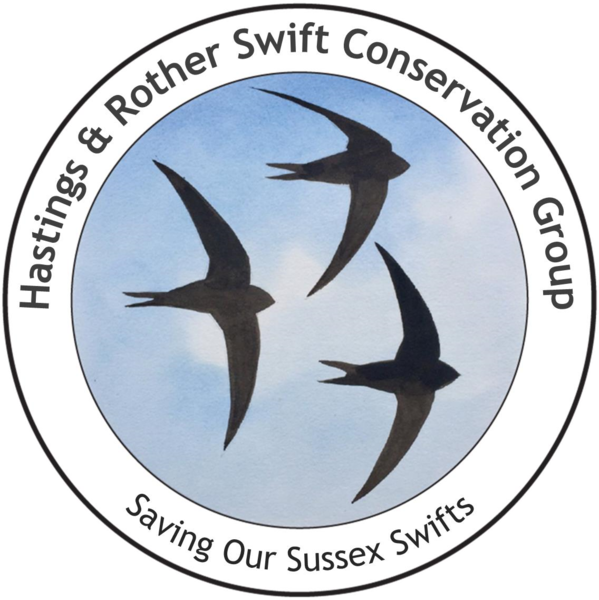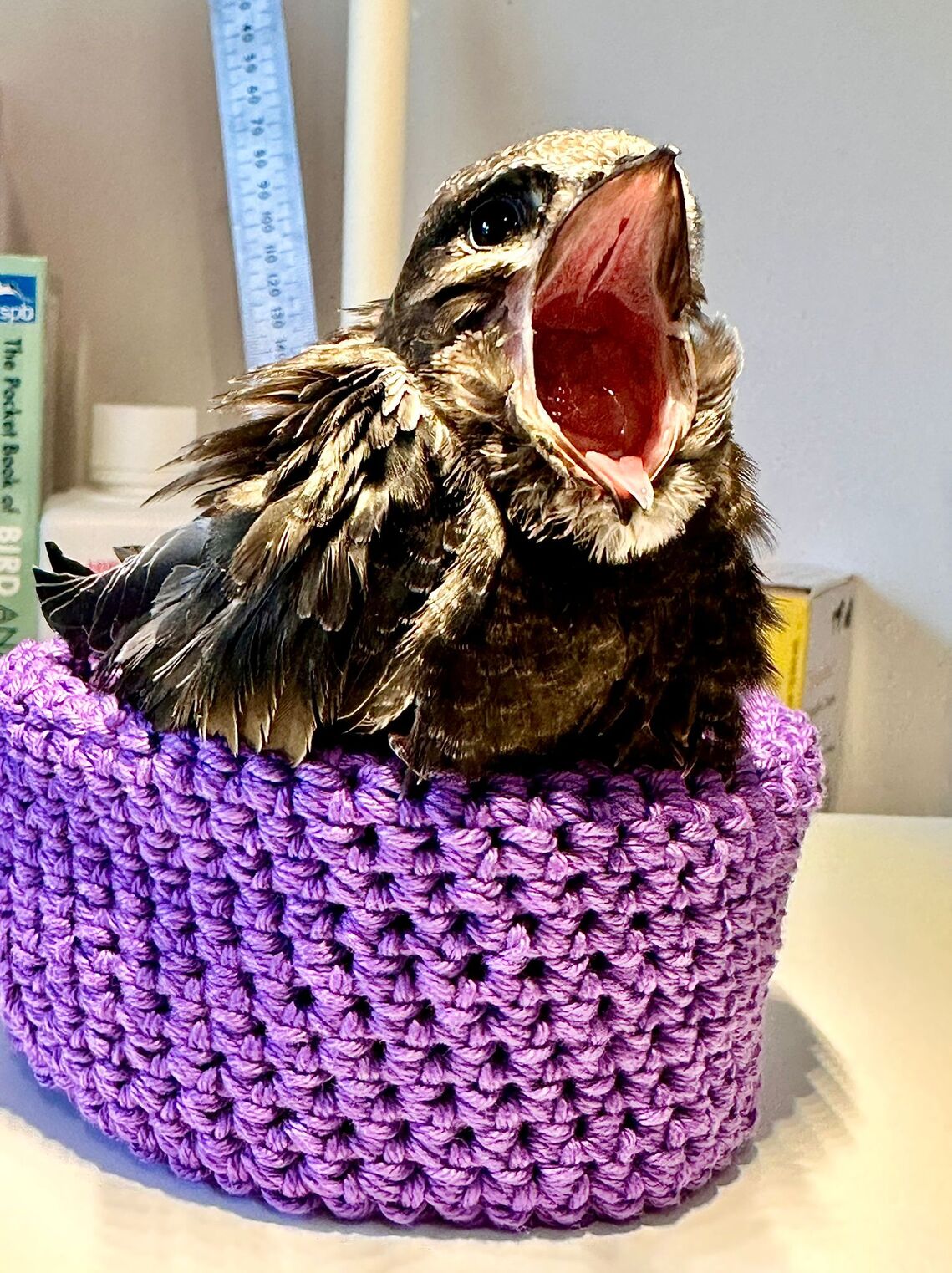We look forward to the arrival of swifts returning to their breeding grounds each year, for parent birds to arrive safely, and young birds to fledge successfully. Sometimes however swifts do get into trouble, and you may find an adult or juvenile bird on the ground and unable to fly away, or young birds that have fallen from the nest.
A grounded swift will need help, and quick action will provide the best chance for their health and survival.
Below are actions to take if you find a grounded swift.
DO:
- put the bird in a box for safety– ideally large enough so the bird has space to move without damaging their long wing feathers.
- make a few air holes in the lid of the box for ventilation.
- if the bird is not fully feathered provide some heat – do this by filling a hot water bottle with hot, but not boiling water, wrapping it in a thickish towel and placing it to one side of the box. A plastic bottle wrapped in a towel, and laid flat can be used as an alternative to a hot water bottle, but make sure it cannot roll around in the box, a further rolled up towel to the side of the bottle may help with this.
- place the bird to the side of the heat source.
- keep the box in a quiet, dark, safe place where it won’t be disturbed, and keep pets and children away.
- call a wildlife centre or specialist rehabber that has experience with providing care for swifts. If you cannot make contact with a rehabber, try your nearest wildlife rescue centre, or RSPCA.
- In the Hastings, Rother and High Weald areas we have organised our own help group. See below for contact details.
DO NOT:
- attempt to see if the bird can fly by throwing it in the air.
- attempt to put the bird back in the nest – it may have injuries that need treating; it may have been evicted by a parent bird; it may not be the right nest; you may cause disturbance or damage to the nest and therefore put other birds at risk of harm.
- provide any food or water. Swifts have special diets, and there may be complications where providing food or water could actually harm the bird. If after contacting a rehabber they advise to offer food or water - follow their instructions.
- provide a heat source if there is an obvious head injury.
- place the bird on top of the heat source (if it is appropriate to provide heat)
- handle the bird beyond what is necessary to keep it safe, or disturb the bird beyond what is necessary to keep it safe, or socialise with the bird for example by letting it sit on you, swifts are sensitive to contact, so it should be kept to the minimum.
HASTINGS, ROTHER & HIGH WEALD SWIFT TRANSPORTERS
We have formed a volunteer swift and hirundine transporter group to take grounded or injured birds to our recommended rescue centres.
If you are not able to transport the bird yourself to one of the below contacts, please call our Co-Ordinator Ian on 07773-363096
Folly Wildlife Rescue - Tunbridge Wells - 01892 543213
East Sussex WRAS Wildlife Rescue & Ambulance Service - 0300-10-26-999
Gabo Wildlife - Kent, Tonbridge & surrounding areas - Carly Ahlen on 07470 857171
FROM THIS:
TO THIS:
Image and Video courtesy of Carly at Gabo Wildlife

